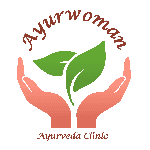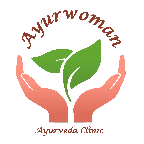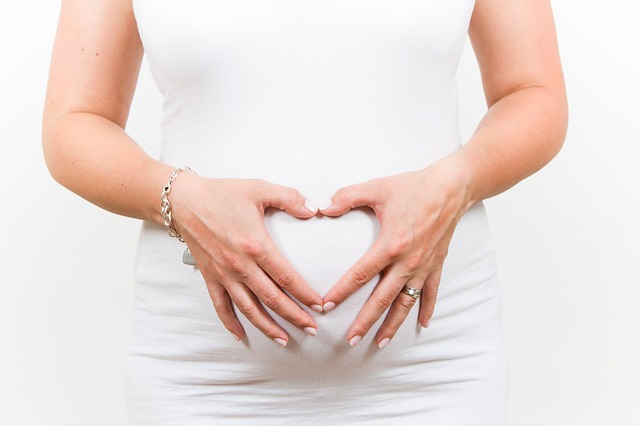PCOS or Polycystic Ovarian Syndrome
PCOS is a condition that has plagued women for a very long time. There was a time when we weren’t aware of what caused the varying degrees of distress in our bodies. Over the years though, there has been sufficient research and solutions to manage this condition.
At our Ayurveda Clinic in Melbourne, treatment for PCOS is conducted holistically and in a safe manner using the ancient wisdom of Ayurveda.
PCOS can be cured by Ayurvedic treatments.
We have had patients visit us for a consult with our practitioner Jyothi, and have stayed on to undergo the therapy suggested by her. The results…
Here is a testimonial that speaks for itself!
“So happy to have found Ayurwoman online and to have met Jyothi. After being diagnosed with PCOS I was looking for a natural approach.
After 3 months of herbs I got my period back regularly. My body weight hard dropped and skin is improving.
Ayuvedic treatment has helped me and I highly recommend her treatments as being extremely effective. Jyothi is also a thoroughly knowledgable, warm, caring practitioner. I am very grateful.”
Let us explain to you what Polycystic ovarian syndrome actually is and how it affects the normal functioning of a woman’s body. PCOS is the most common endocrine defect in pre-menopausal women.
PCOS or polycystic ovarian syndrome is not a single disease but is a group of disorders characterised by one or more of the following:
- Irregular periods
- Oligomenorrhea
- Amenorrhoea
- PMS and dysmenorrhoea
- pelvic pain (usually unilateral)
- obesity
- acne
- thinning of hair
- excess facial or body hair growth
- Resistance to metabolise blood glucose
- skin colour changes
- virility
- depression
- infertility
If you suffer from one or more of the above mentioned symptoms, it may be time to pay us a visit. Allow us to work with you in understanding the cause of the distress and to know how Ayurveda can help you resolve the problem and give you relief.
PCOS Aetiology
The aetiology of polycystic ovarian syndrome is unknown. However there is increasing evidence of a genetic disposition. This is related to an inherited defect in sugar metabolism which makes cells tired. This creates an increase in appetite and craving. Starvation of ovarian cells forces them to become swollen and they form small cysts. An elevated LH to FSH ratio leads to failure of normal ovarian follicle development and anovulation.
Now that we know what this condition actually is and what it does to our bodies, let us introduce you to the Ayurvedic treatment we can help you with, if you are indeed suffering with PCOS. The natural and time tested treatments and therapies offered by us at Ayurwoman Ayurveda Clinic will help you reach a state of mental peace and physical wellness.
Ayurvedic medicine for polycystic ovarian syndrome
PCOS is usually included under gulma classification of Ayurvedic medicine which has symptoms of bloating, constipation, reduced metabolism, abdominal distension and pain, low back pain, dysmennorhoea, delayed periods or absence of periods and sub fertility.
PCOS Causes
Causes of polycystic ovarian syndrome as per classical Ayurveda texts are unhealthy diet and lifestyle, hereditary factors, menstrual irregularities and idiopathic. PCOS is not directly mentioned as a single disease in classical Ayurvedic texts but are classified as symptoms of menstrual disorders.
Bewilderment with the changes a body undergoes when suffering with unknown maladies can add mental stress and emotional trauma. Using the extensive information and symptoms for PCOS we have put together here will empower you with the knowledge and confidence to reach out to us. We have the necessary treatments in addition to a compassionate and skilled ayurvedic practitioner to take care of you.
Variations of polycystic ovarian syndrome
Cyst in uterus or ovary & menstrual blood with clots
Increased Kapha dosha due to low metabolism obstructs the apanavayu movements (downward flow of menstrual blood, urine and faeces). Excess of kapha dosha produces fluid filled sacs and heaviness to the body. Vitiated vata reduces menstruation or causes dysmenorrhoea.
Oligomennorgoea with Dysmennorhoea
Oligomennorhoea with Dysmennorhoea happens due to vitiated pitha and vata. Here Menstruation is delayed or is scanty with pain and sometimes happens with burning sensation.
Primary or Secondary amennorhoea
The vitiated doshas or humors obstruct the apanavayu and menstrual blood channels causing primary or secondary amennorhoea. All three vitiated doshas are involved here.
We now have for you details on the holistic treatments Ayurveda has to relieve you of the distress brought on due to PCOS. We are certain you will feel confident to try out the therapies mentioned and allow your bodies to heal in the most natural manner available. Reach out to Jyothi at Ayurwoman. The below mentioned therapies are specific in their body type and corresponding treatments.
PCOS treatment in Ayurveda
An important point in the PCOS Ayurvedic treatment is identifying person’s dosha type or body nature and their digestive and metabolic power. Treatment principles and medicine selection can vary for an obese woman and a lean woman with polycystic ovarian syndrome.
Obese woman with blood sugar issues and excess body hair
Ayurvedic PCOS treatment starts with a preparatory phase where patient’s bodily systems are prepared to accept treatment. Treatment then progresses into a full fledged cleanse and then concludes with ayurvedic medication.
Phase I: Preparatory Phase or pre-treatment phase
Selection of Ayurvedic medicines and diet must have
-
- Digestive, carminative and mild laxative qualities
- Must have properties to reduce body weight and serum cholesterol
- Correcting blood glucose level, thereby reducing craving and tiredness and excessive hair growth
Phase II: Detox procedures (Panchakarma)
-
- Internal oleation, sweating, therapeutic purgation and Vasthis.
- Here vasthi should be kapha, vatha reducing, pitha pacifying and weight reducing. This vasthi alone will give very quick results.
Phase III: Internal medicine
-
- Internal medicine to balance LH / FSH ratio and correct menstruation
Phase IV: Internal medicine – for long term sustained benefits
-
- Rasayana and fertility medicines – Rasayana medicine is a group of herbal remedies with antioxidant properties used in ayurveda to promote health, provide defence against disease, and promote longevity.
PCOS treatment for lean women
As per the ayurvedic dosha view for pcos treatment of lean women, vata dosha increases generally but kapha dosha increases only locally and around the pelvic area.
Phase I: Pre Treatment or preparatory phase
-
- Correcting agni and apanavayu and blood glucose level by digestive and carminative medicines.
- Selection of ayurvedic medicines should be:
- Vata pacifying nature
- Digestive in nature
- Mildly laxative in nature
- Nourishing
- Hormone balancing
Phase II: Ayurvedic detox (Pancha karma)
-
- Panchakarma
- Internal oleation with medicated ghee (they have vata pacifying and hormones balancing qualities)
- Swetting and therapeutic purgation to remove toxins and ama that block apanavayu
- Vasthi with vatha samana and nourishing medicines.
- Utharavathi to shrink or burst ovarian cysts.
Phase III: Internal Medicines
-
- Internal medicines to correct LH/FSH ratio and correct periods
Phase IV: Internal medicines for long term benefits
-
- Rasayana and fertility medicines
Where to from here ?
We hope this detailed summary of PCOS and the related therapies and treatments have given you what is needed to help decide to make Ayurveda your go-to treatment. Our clinic in Melbourne is a safe haven for sharing your troubles with Jyothi and finding the necessary answers. We use constantly the assurance of the wisdom that Ayurveda has outlined for us for hundreds of years. These methods not only treat but add holistic wellness to your bodies.
We have another testimonial from one of our patients who have found solace in Ayurveda and Ayurwoman in Melbourne.
Poly Cystic Ovary Syndrome and Type 2 Diabetes
“I was diagnosed as PCOS and diabetic type 2 In march 2013. I was so disappointed about it and discussed with some of friends when one of my friend suggested Ayurvedic treatment is the best cure. So I googled to see if there is any Ayurvedic centre closer to me and I found jyothi’s in Glen Huntly. I called and booked and appointment in early April. Jyothi recommended some medication which I have been using for about 5 months now. It’s really effective and I got my piriot back regularly within a month and my body weight dropped up to 8kg in 4 months. My blood sugar level is quite normal. I’m so excited and energetic. Besides I have been doing walking and yoga to reduce my weight. Jyothi is guiding me and taking good care of my health and solving my doubts from time to time. Thanks to dr. Jyothi.”
P. D. Dandenong


